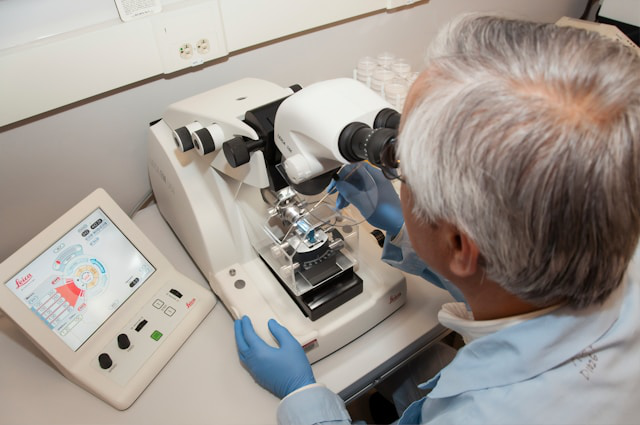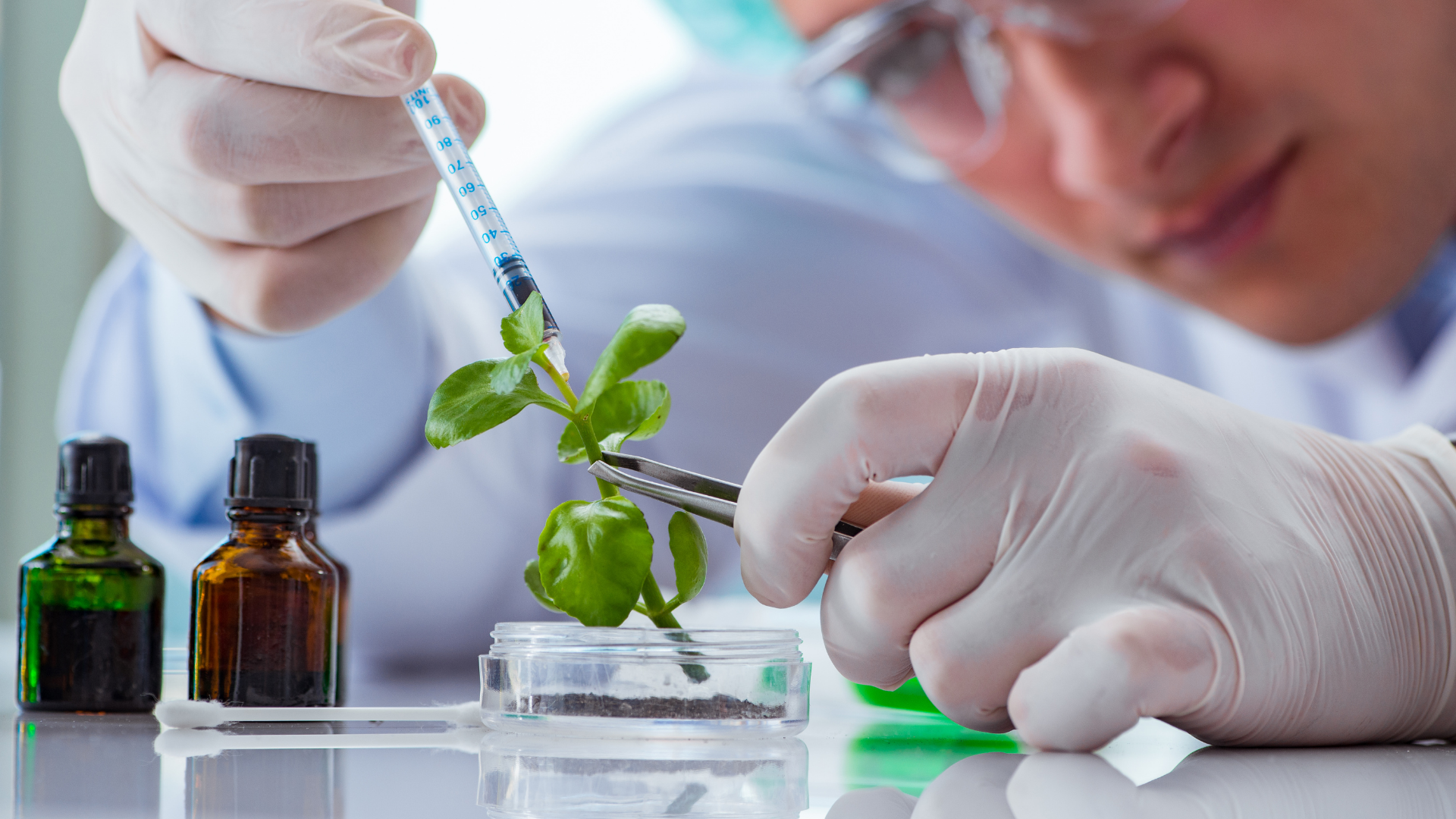The Vital Role of Sustainable Peptide Synthesis in Advancing Drug Development

Peptides, short chains of amino acids, play a crucial role in drug development. They have the potential to target specific biological processes and provide promising therapeutic solutions for various diseases. However, the traditional methods of peptide synthesis often involve environmentally harmful reagents and generate significant waste. This is where sustainable peptide synthesis comes into play. Sustainable peptide synthesis refers to the development and implementation of methods that minimize the environmental impact of peptide manufacturing while maintaining high efficiency and yield. By adopting sustainable practices, scientists and researchers can contribute to the advancement of drug development while minimizing their ecological footprint.
The Importance of Sustainable Peptide Synthesis in Drug Development
Sustainable peptide synthesis holds immense importance in the field of drug development. By utilizing environmentally friendly manufacturing methods, researchers can reduce the negative impact of peptide synthesis on the environment and human health. Traditional methods often involve the use of toxic solvents and reagents, which can result in the release of harmful by-products and waste. Sustainable peptide synthesis aims to minimize or eliminate the use of hazardous chemicals, making the process safer and more sustainable.
Moreover, sustainable peptide synthesis allows for the production of peptides on a larger scale, facilitating the development of novel therapeutics. By optimizing manufacturing processes and reducing waste generation, sustainable peptide synthesis enables cost-effective production of peptides. This not only benefits pharmaceutical companies but also makes peptides more accessible for research and development purposes. As a result, the advancement of drug development is accelerated, leading to the discovery of new treatments for various diseases.
Advantages of Sustainable Peptide Synthesis over Traditional Methods
Sustainable peptide synthesis offers several advantages over traditional methods. Firstly, it reduces the use of toxic solvents and reagents, minimizing the risk to human health and the environment. By employing greener alternatives, such as water-based reactions and bio-based solvents, sustainable peptide synthesis significantly decreases the release of harmful substances into the environment.
Secondly, sustainable peptide synthesis optimizes reaction conditions to enhance efficiency and yield. By utilizing advanced technologies and innovative approaches, researchers can achieve higher purity and yield of synthesized peptides. This not only reduces the amount of waste generated but also minimizes the need for additional purification steps, making the process more cost-effective.
Lastly, sustainable peptide synthesis promotes the use of renewable resources and biodegradable materials. By incorporating bio-based building blocks and renewable energy sources, researchers can further reduce the carbon footprint of peptide synthesis. This sustainable approach aligns with the principles of green chemistry and contributes to a more environmentally friendly drug development process.
Sustainable Peptide Manufacturing Methods
In recent years, various sustainable peptide manufacturing methods have been developed to reduce the environmental impact of peptide synthesis.
SSPS
Solid-phase peptide synthesis (SPPS) stands as a cornerstone method in clinical biomarker validation criteria. By efficiently synthesizing peptides through amino acid attachment to a solid support, SPPS drastically reduces solvent usage and minimizes waste generation. This environmentally conscious approach not only streamlines peptide production but also aligns with sustainable practices crucial for modern research and pharmaceutical endeavours.
Flow Chemistry
Flow chemistry offers a sustainable paradigm for peptide synthesis, characterized by the continuous flow of reagents through a reactor. This method enables meticulous control over reaction parameters, enhancing efficiency while reducing the need for excess reagents. By minimizing waste generation and energy consumption, flow chemistry presents a greener alternative to traditional batch processes. Its streamlined approach not only optimizes resource utilization but also aligns with the growing imperative for environmentally conscious practices in chemical synthesis. Embracing flow chemistry represents a significant stride towards more sustainable and efficient peptide synthesis methodologies, with far-reaching implications for research, industry, and environmental stewardship.
Biocatalysis
Incorporating biocatalysis into peptide synthesis provides a sustainable pathway forward. Leveraging enzymes allows for superior selectivity and yield, enhancing the efficiency of peptide production. Compared to conventional chemical reactions, enzyme-catalysed processes are inherently more environmentally friendly, operating under mild conditions and yielding fewer by-products. This eco-friendly approach not only reduces the environmental footprint of peptide synthesis but also aligns with the growing emphasis on sustainable practices in chemical research and development. By harnessing the power of biocatalysis, researchers can pave the way for greener and more efficient peptide synthesis methodologies, driving innovation while minimizing environmental impact.
Sustainable Peptide Sequencing Techniques
Sequencing peptides is a crucial step in drug development, as it allows researchers to determine the exact sequence of amino acids. Sustainable peptide sequencing techniques have emerged to address the challenges associated with traditional sequencing methods. One such technique is mass spectrometry, which enables the identification and characterization of peptides based on their mass-to-charge ratio. Mass spectrometry is a versatile and powerful tool that provides accurate and reliable sequencing information while minimizing the use of hazardous chemicals.
Another sustainable sequencing technique is NMR spectroscopy. Nuclear Magnetic Resonance (NMR) spectroscopy allows researchers to analyze the structure and composition of peptides by measuring the interactions of atomic nuclei with a magnetic field. NMR spectroscopy provides valuable information about peptide sequences and can be utilized in a non-destructive manner, reducing waste generation.
Case Studies Showcasing the Success of Sustainable Peptide Synthesis in Drug Development
Several case studies highlight the success of sustainable peptide synthesis in advancing drug development. One such example is the synthesis of cyclotides, a unique class of peptides with significant therapeutic potential. Cyclotides exhibit a range of biological activities, including antimicrobial and anticancer properties. By employing sustainable peptide synthesis methods, researchers have been able to efficiently produce cyclotides, opening up new avenues for drug discovery and development.
Another notable case study involves the synthesis of peptide-based vaccines. Peptide vaccines have gained attention as a promising approach for immunization against infectious diseases and cancer. Sustainable peptide synthesis has enabled the large-scale production of peptide vaccines, making them more accessible for clinical trials and potential commercialization. This breakthrough in sustainable manufacturing methods has the potential to revolutionize the field of vaccination and improve global health outcomes.
Challenges and Future Prospects of Sustainable Peptide Synthesis
While sustainable peptide synthesis offers numerous benefits, there are still challenges to overcome. One of the main challenges is the development of scalable and cost-effective manufacturing processes. Sustainable methods often require additional steps or specialized equipment, which can increase production costs. Researchers need to focus on developing efficient and economically viable processes that can be adopted by pharmaceutical companies on a larger scale.
Another challenge is the optimization of peptide purification techniques. Purification is a critical step in peptide synthesis, and traditional methods often involve the use of organic solvents and chromatographic techniques that generate significant waste. Sustainable purification methods, such as membrane-based separations and bio affinity chromatography, need to be further explored and developed to minimize waste generation and improve purity.
Looking ahead, the future prospects of sustainable peptide synthesis are promising. Advances in green chemistry, automation, and computational modelling will continue to drive innovation in peptide synthesis. Researchers are exploring the use of renewable resources, such as plant-based amino acids, and developing more sustainable peptide sequencing techniques. The integration of sustainable peptide synthesis with other emerging technologies, such as artificial intelligence and machine learning, will further enhance the efficiency and effectiveness of drug development.
The Role of Sustainable Peptide Synthesis in the Advancement of Biologics
Biologics, a growing class of therapeutics, are revolutionizing the field of medicine. These complex molecules, often derived from living organisms, provide targeted and effective treatments for a wide range of diseases. Sustainable peptide synthesis plays a vital role in the advancement of biologics by enabling the production of peptides and peptide-based therapeutics with minimal environmental impact.
Furthermore, sustainable peptide synthesis contributes to the development of biosimilars, which are highly similar versions of already approved biologics. Biosimilars offer cost-effective alternatives to expensive biologic drugs and increase patient access to essential therapies. By utilizing sustainable manufacturing methods, researchers can produce biosimilars in a more environmentally friendly manner, reducing the ecological footprint of these life-saving treatments.
Companies and Organizations Leading the Way in Sustainable Peptide Synthesis
Numerous companies and organizations are spearheading sustainable peptide synthesis, championing innovation, and advocating for environmentally conscious practices. One standout company is BioPeptiX, renowned for its expertise in crafting sustainable peptide hydrogels for diverse biomedical applications. These hydrogels boast biodegradability, non-toxicity, and customizable properties tailored to specific therapeutic requirements.
Additionally, the Sustainable Peptide Consortium stands out as a collaborative venture between academia and industry giants. This consortium is dedicated to pioneering sustainable peptide synthesis methodologies and fostering their integration into pharmaceutical development. Their research emphasizes the utilization of renewable materials, eco-friendly solvents, and cutting-edge manufacturing processes to mitigate the ecological footprint of peptide synthesis..
Conclusion: The Bright Future of Sustainable Peptide Synthesis in Drug Development
Sustainable peptide synthesis plays a vital role in advancing drug development by minimizing the environmental impact of peptide synthesis while maintaining high efficiency and yield. By adopting greener manufacturing methods and optimizing reaction conditions, researchers can reduce the use of toxic solvents, minimize waste generation, and promote the use of renewable resources. Sustainable peptide synthesis not only benefits the environment but also accelerates the development of novel therapeutics and improves global health outcomes.
As the field of drug development continues to evolve, sustainable peptide synthesis will remain at the forefront of innovation. Advances in green chemistry, automation, and computational modelling will contribute to the development of more efficient and cost-effective manufacturing processes. The integration of sustainable peptide synthesis with other emerging technologies, such as artificial intelligence and machine learning, will further enhance the efficiency and effectiveness of drug discovery and development. With the collective efforts of researchers, companies, and organizations, the future of sustainable peptide synthesis in drug development looks bright.







